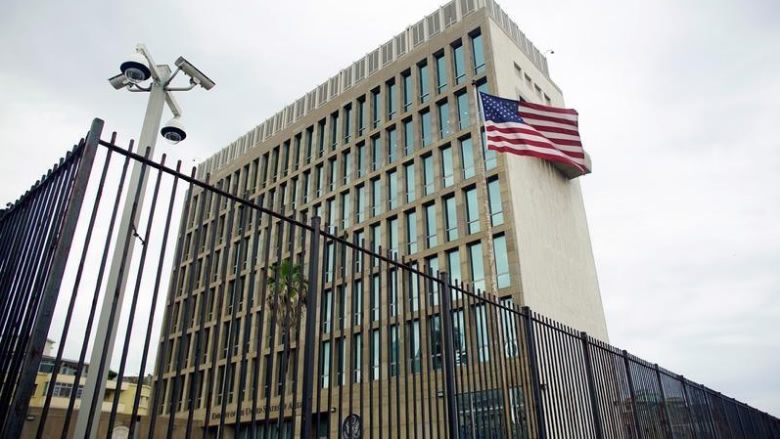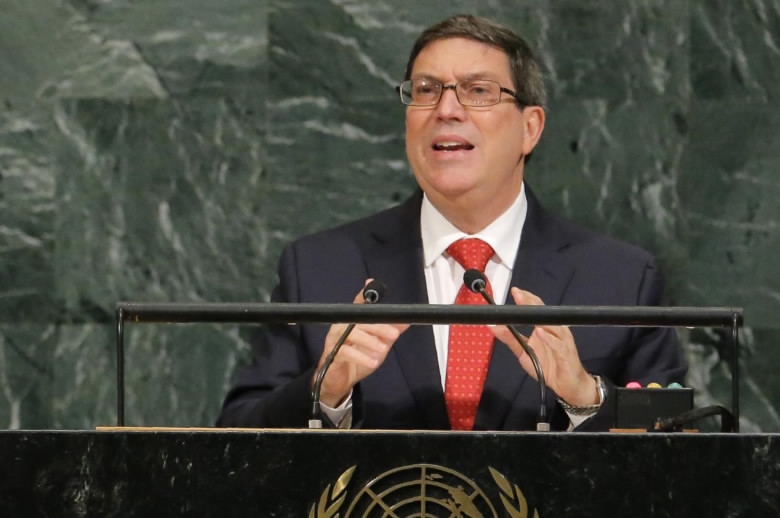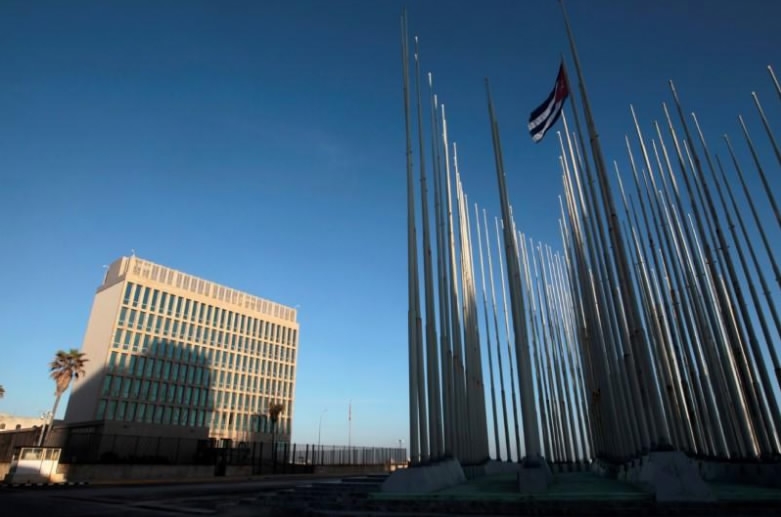
Politics
10:07, 27-Sep-2017
Cuba warns US hasty decisions in alleged sonic attack
CGTN

Cuba’s foreign minister told his US counterpart on Tuesday that it would be regrettable if “hasty decisions not supported by conclusive evidence” were taken over the alleged incidents harming US diplomats and their families in Havana.
Cuba’s top diplomat,Bruno Rodriguez Parrilla , met US Secretary of State Rex Tillerson in Washington amid a fierce dispute over alleged attacks on the health of American diplomats in Havana.
"The Foreign Minister reaffirmed that the investigation to resolve this matter is still in progress," the Cuban Foreign Ministry said in a statement, noting that "effective cooperation" of US authorities was essential.
"It would be regrettable that a matter of this nature is politicized and that hasty decisions not supported by conclusive evidence and investigation results are taken."
The meeting "took place in a respectful ambiance," the Cuban Foreign Ministry said.

Cuban Foreign Minister Eduardo Rodriguez Parrilla addresses the 72nd United Nations General Assembly at UN headquarters in New York, US, September 22, 2017. /Reuters Photo
Cuban Foreign Minister Eduardo Rodriguez Parrilla addresses the 72nd United Nations General Assembly at UN headquarters in New York, US, September 22, 2017. /Reuters Photo
At least 21 Americans and five Canadian families have been hurt since last year in what Tillerson has described as "health attacks" and which US officials think may have come from an "acoustic device."
The meeting – the first between the two men since Donald Trump entered the White House in January – took place behind closed doors, the US State Department said.
"US Secretary of State Tillerson and Cuban Foreign Minister held 'firm and frank' conversation reflecting US concern for the safety and security of its diplomatic personnel," US State Department spokesperson Heather Nauert said in a statement.
"The Secretary underscored the Cuban authorities’ obligations to protect Embassy staff and their families under the Vienna Convention," Nauert said in her statement.
The Cuban government requested the meeting according to spokeswoman Heather Nauert, who added Tillerson would have "plenty of questions."
Last week, Cuba's Foreign Minister Bruno Rodriguez Parrilla told the UN General Assembly that his country had found no evidence to link the symptoms to any outside assault.
But Tillerson said last week the United States is considering whether to close its embassy in Cuba following the alleged attacks, which US authorities say began last year and continued to at least last month.

A Cuban flag is seen in front of the US embassy in Havana, Cuba, November 9, 2016. /Reuters Photo
A Cuban flag is seen in front of the US embassy in Havana, Cuba, November 9, 2016. /Reuters Photo
According to a union representing US overseas staff, the victims have suffered a variety of symptoms and injuries, including in some cases brain trauma and hearing loss.
Washington has not accused Cuba of being behind the attacks, but has repeatedly warned that Havana is responsible for the safety of foreign envoys on its soil, and in May, two Cuban diplomats were expelled from the US.
"Cuba has never perpetrated nor will it ever perpetrate actions of this sort. Cuba has never allowed nor will it ever allow its territory to be used by third parties with that purpose," Parrilla said.
Relations between the United States and Cuba were restored by then president Barack Obama and his counterpart Raul Castro in 2015, half a century after the Cold War rivals cut ties and began a long diplomatic standoff.
Source(s): AFP
,Reuters

SITEMAP
Copyright © 2018 CGTN. Beijing ICP prepared NO.16065310-3
Copyright © 2018 CGTN. Beijing ICP prepared NO.16065310-3